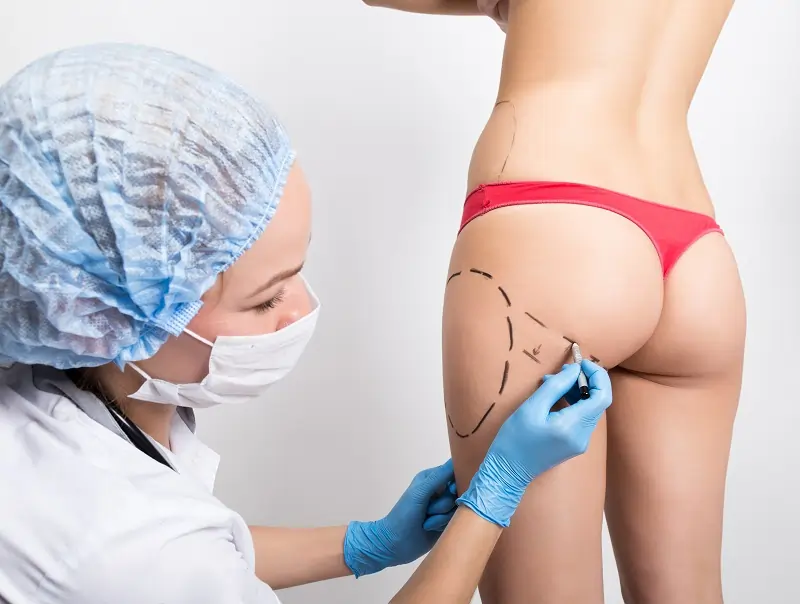Ask The Surgeon - then read about plastic surgery GPT below.

Picture a world where Plastic Surgery GPT revolutionizes the field of cosmetic enhancements.
AI is making its presence felt in the realm of plastic surgery, revolutionizing the field of cosmetic enhancements. The introduction of ChatGPT in plastic surgery offers promising advancements for both patients and medical professionals alike.
This blog post delves into the role of ChatGPT in plastic surgery, exploring AI-driven solutions for patient care-related inquiries and improving surgical precision with robotic-assisted procedures. However, it's crucial to acknowledge the limitations and challenges that come with these technologies, such as plausible-sounding but nonsensical answers or lack of awareness regarding current events.
As we continue our exploration into Plastic Surgery GPT's potential applications, we'll discuss its performance on medical licensing exams - dealing with difficult patients using AI assistance and identifying drivers behind advancements in surgery. Furthermore, we'll address ethical implications within surgical contexts like patient privacy concerns and resistance from medical professionals toward new technologies.
Lastly, this blog post will encourage users to consult Surgeon's GPT for cosmetic plastic surgery information by highlighting benefits associated with using ChatGPT during their decision-making process.
Join us on this fascinating journey as we uncover how Plastic Surgery GPT could reshape the future of aesthetic medicine!
ChatGPT in Plastic Surgery: The Future of Cosmetic Enhancements
Artificial intelligence (AI) models like ChatGPT are making waves within the realm of plastic and reconstructive surgery. But what exactly can they do?
Limitations of ChatGPT: What You Need to Know Before Going Under the Knife
No system is perfect - especially when it comes to AI models like ChatGPT.
Potential Consequences: Incorrect information could lead to unsatisfactory results or even complications.
Outdated information: ChatGPT may not be aware of the latest advancements in plastic surgery, which could affect its recommendations.
Ethical Considerations for Using AI Models in Surgery: A Delicate Balance
As with any medical technology, ethical implications must be considered when using ChatGPT in clinical settings.
Limitations of ChatGPT in Plastic Surgery
Though no technology is infallible, ChatGPT has its advantages and must be used with caution when considering plastic surgery consultations or education. While ChatGPT has its merits, there are some limitations that we need to address when using it for plastic surgery consultations and education.
First up: accuracy matters. Sometimes, AI models like ChatGPT can generate incorrect or misleading information with confidence. This is not ideal for medical practices, right? To avoid potential consequences of relying on inaccurate information from AI models, always cross-check with reliable sources.
Addressing Biases Present Within the System Itself
No one wants a biased opinion when seeking medical advice. Unfortunately, instances have occurred where ChatGPT generated biased dialogue when prompted by certain questions. It is important to highlight such issues within the system itself.
Outdated Information? No Thanks.
In this fast-paced world of constant advancements and discoveries in medicine, ChatGPT might not be aware of recent developments due to lack of awareness about current events.
Ethical Considerations for Using AI Models in Surgery
Let's dive into the ethical side of things when it comes to using AI models in surgery.
Using ChatGPT in clinical settings has its own set of concerns, especially when it comes to patient privacy and safety.
We need to strike a balance between the benefits and potential harm caused by misinformation generated by AI models like ChatGPT.
Accuracy is crucial, so let's make it our top priority before implementing these technologies in surgical practices.
Balancing Benefits Against Potential Harm Caused by Misinformation
The power of AI-driven solutions can be both a blessing and a curse.
While they provide valuable insights, there's always the risk that biased or incorrect information could lead to complications during surgery or even postoperative issues.
It's important to note that this concern is not unfounded; hence we must tread carefully while using such tools.
Ensuring Accuracy Remains a Top Priority Before Implementation
Achieving accuracy should be non-negotiable when incorporating AI models into medical practice.
- Data Quality: Ensure high-quality data sources are used for training purposes, minimizing errors due to inaccurate inputs.
- Rigorous Testing: Test the model extensively on various scenarios before deploying it within clinical settings. This helps identify any shortcomings early on.
- Collaboration: Encourage a collaborative approach between AI models and human experts to verify the generated information before acting upon it.
In this way, we can ensure that AI-driven solutions like ChatGPT are used responsibly in plastic surgery practices.
Addressing Resistance from Medical Professionals Towards Adopting New Technologies
Change is never easy.
The medical community might be hesitant about adopting new technologies such as AI-driven solutions for various reasons - fear of job displacement, lack of trust in machine-generated content, or simply being unfamiliar with how these systems work.
However, educating professionals about the benefits and limitations of using AI models could help overcome resistance.
Patient Privacy and Safety Concerns
Last, patient privacy must always be respected when implementing any technology within healthcare settings.
- Data Security: Ensure robust data security measures are in place to protect sensitive patient information from unauthorized access or misuse.
- Patient Consent: Obtain informed consent from patients before utilizing their data for training purposes or during consultations involving an AI model like ChatGPT.
- Ethical Guidelines: Establish ethical guidelines governing the use of artificial intelligence within surgical practice to prevent potential abuse or exploitation.
Taking these steps will go a long way towards addressing concerns related to patient privacy and safety while incorporating cutting-edge technologies into plastic surgery practices.
Key Takeaway: Using AI models in plastic surgery requires careful consideration of ethical concerns, including patient privacy and safety. Accuracy is crucial when implementing these technologies, which should be thoroughly tested and verified by human experts before being used in clinical settings. Resistance from medical professionals can be overcome through education about the benefits and limitations of using AI-driven solutions.
Overcoming Challenges Associated with Implementing GPTs
Integrating ChatGPT into plastic surgery practices can be challenging, but it's not impossible. To ensure patient well-being and safety, we need to address some key limitations and obstacles.
But fear not. We've got you covered with actionable strategies that can help overcome these challenges.
Strategies for Integrating GPTs Safely
Step #1: Start by gathering high-quality training data. This ensures the AI model is equipped with accurate and up-to-date information on surgical procedures and techniques.
Step #2: Employ a human-in-the-loop approach. Involving expert surgeons in reviewing AI-generated content helps maintain accuracy while fostering collaboration between human experts and artificial intelligence systems.
Encouraging Collaboration Between Human Experts & Artificial Intelligence Systems
Engaging Patients through Surgeon’s GPT Consultation
Did you know that cosmetic plastic surgery is becoming increasingly popular? AI technology like ChatGPT can help patients make informed decisions.
That's right.
FAQs in Relation to Plastic Surgery Gpt
What is the highest risk plastic surgery?
The highest risk plastic surgery is body contouring procedures like abdominoplasty (tummy tuck) and lower body lift. These surgeries have a higher rate of complications, such as infection, bleeding, and blood clots due to their invasive nature and extensive tissue manipulation. However, risks can be minimized by choosing an experienced surgeon and following post-operative care instructions.
What are the 5 most common plastic surgeries?
The five most common plastic surgeries are:
- Breast augmentation
- Liposuction
- Rhinoplasty (nose reshaping)
- Eyelid surgery (blepharoplasty)
- Tummy tuck (abdominoplasty)
What is the argument for plastic surgery?
Proponents of plastic surgery argue that it can significantly improve one's quality of life by enhancing physical appearance, boosting self-esteem, correcting congenital or acquired deformities, and restoring function after trauma or illness. Additionally, reconstructive procedures may help patients regain normalcy after disfiguring accidents or medical conditions.
Why is plastic surgery so stigmatized?
Plastic surgery is often stigmatized due to societal pressure to conform to unrealistic beauty standards and the perception that it is only for the wealthy. Additionally, there is a fear of surgery's risks and potential complications. However, with technological advancements and techniques, plastic surgery has become safer and more accessible to people of all backgrounds.
Conclusion: plastic surgery GPT
In conclusion, the use of Plastic Surgery GPT has shown promising results in improving patient care-related inquiries and surgical precision with robotic-assisted procedures. However, there are limitations and challenges, such as plausible-sounding but nonsensical answers and a lack of awareness regarding current events. Additionally, the performance on medical licensing exams can be enhanced by using AI assistance for dealing with difficult patients and identifying drivers behind advancements in surgery.
Despite ethical implications in surgical contexts, such as patient privacy and safety concerns, encouraging users to consult surgeons' GPT for cosmetic plastic surgery information can lead to benefits like making informed decisions with AI assistance. SurgiSculpt is a leading provider of cosmetic plastic surgery services that utilizes advanced technologies, including Plastic Surgery GPT, to provide personalized solutions for each patient's unique needs.
If you're interested in learning more about how SurgiSculpt can help you achieve your desired appearance through safe and effective cosmetic plastic surgery procedures, contact us today!



